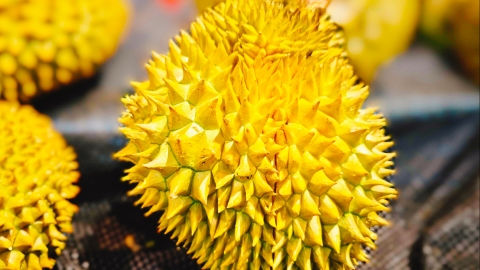Can patients with high blood lipids eat more durian?
Generally, patients with high blood lipids are not advised to eat durian excessively, but moderate consumption is acceptable. The analysis is as follows:

Durian is a nutrient-rich fruit containing various nutrients, including protein, fat, carbohydrates, vitamins, and minerals. These components offer multiple health benefits, such as strengthening the body, invigorating the spleen, nourishing kidney function, promoting blood circulation, and relieving cold conditions. Additionally, the polyphenols and vitamins in durian provide good antioxidant effects, which are beneficial to health. Patients with high blood lipids can generally consume durian in moderation. However, due to its high sugar content, excessive intake may lead to weight gain, which is not conducive to lipid control.
Patients with high blood lipids should pay attention to adjusting their diet in daily life, consuming more low-cholesterol, low-fat, low-sodium foods rich in vitamins and dietary fiber, such as yam, corn, and green vegetables. At the same time, they should quit smoking and drinking alcohol, increase physical exercise appropriately, manage body weight, and regularly monitor changes in blood lipid levels.









